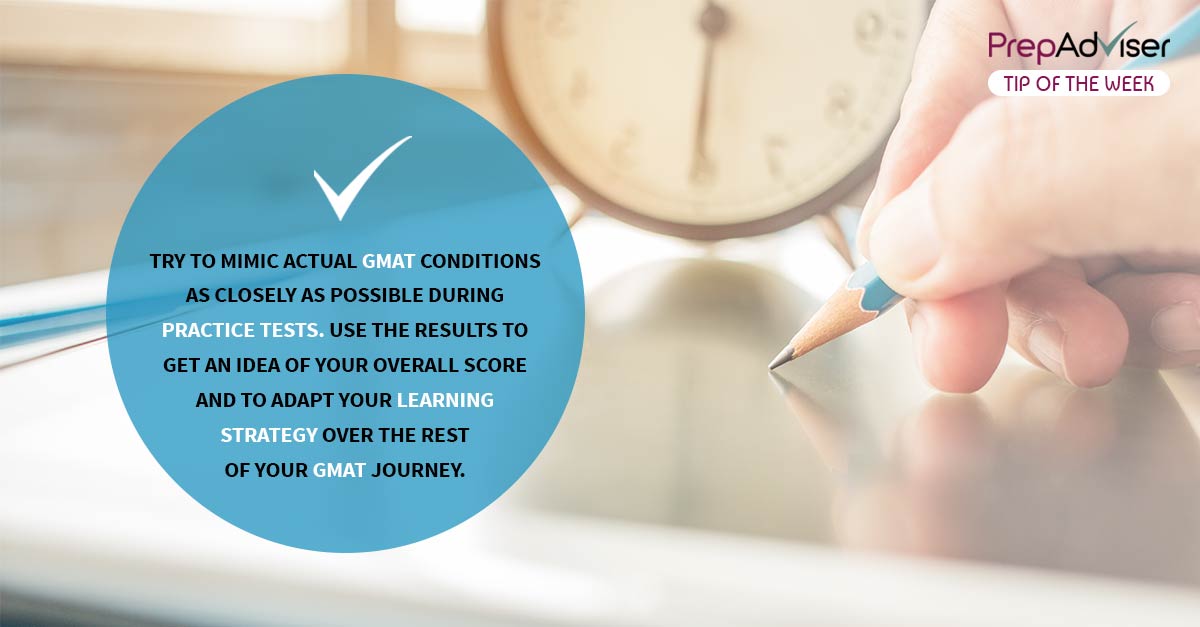The GMAT offers a brutally clear evaluation in the form of a numerical score – but how do you tell how you’re doing in your prep process? How much can practice tests really tell you? Are there any other ways – good additions or superior alternatives – to help make sure you’re progressing toward your GMAT goals?
Human feedback is great – but limited
Many people prepping for the GMAT elect to work with a personal tutor. Some do this because they find they learn more efficiently or powerfully from one-on-one instruction. Others hire tutors precisely because they think they can outsource the concern of evaluating one’s progress along the way to someone with expert knowledge of both the test and their prep work.
It’s a good idea, in theory. Many tutors often do have a very good handle on their students’ learning styles and their students’ progression toward their target scores. However, this requires both the right tutor, and the right tutor-student relationship, which not everyone enjoys.
Check out: 3 Common Mistakes in GMAT Practice (Video)
Some tutors think or suggest they have more insight into their students’ progress than they actually do. There are plenty of reasons why this might be the case. Good tutors often function as not only instructors but also cheerleaders and therapists, and they feel compelled to offer positivity and optimism to nervous students. Tutors are also, rightly, concerned about the students’ satisfaction – would you keep paying for a tutor who told you that you weren’t making any progress? Maybe, or maybe not.
For the most part, it’s great to get feedback from an expert if you can afford it and find the right person. Even in this scenario, however, it’s still a good idea to look for other kinds of feedback and evaluation.
Go full scientist
Your entire GMAT prep is essentially one big experiment, with a value (your progress) that you’re attempting to observe over time. So be smart – try to come up with a controlled system for regularly monitoring your progress, to maximise the accuracy and relevance of your data.
Let’s say you choose to evaluate your progress by taking practice tests. This is perfectly logical. Make sure the important variables are factored in so that you’re only testing for your own progress. Take the same kind of test (either subject specific or the whole GMAT) at regular intervals, attempting to observe the same conditions in every case (same time of day, same amount of food/sleep before taking it, the same testing technology, etc).
Are there other ways besides full-length practice tests?
Full-length practice tests don’t have to be the kind of evaluation materials you use – although testing your progress at completing something that mimics the full-length test serves the dual purpose of helping you prepare more for what the actual test will be like. But you can alternate the kind of evaluation materials you use. For instance, you might take a verbal practice test one week, a quantitative test the next week, a full-length test the third week, and start the cycle anew the fourth week.
Almost any evaluation materials you use will probably be practice GMAT questions. But there are alternatives to how you group them – you can also organise your self-evaluation by subject matter, question type, and difficulty.
Many of the newer digital resources make it easy to organise your strategy and keep track of your progress in customisable ways. For example, the GMAC (the corporation that creates and administers the GMAT and prints the Official Guide) offers an electronic question bank where you can track and sort all the questions you work with, as well as how you do on them. This helps you easily notice trends in your progress over time and re-adjust your study plan accordingly.
Check out: How Important Is English Grammar for Your GMAT and GRE Scores?
Is there such a thing as taking too many practice tests?
There is, although it’s a different kind of concern for different kinds of students. Full-length practice tests take a long time, and sometimes people don’t use their self-evaluations as learning opportunities. If you’re not learning from your periodic evaluations, then there is probably such a thing as testing too often, simply because of how much of your time and attention it will take up without offering you much in return.
We also sometimes see students who become too obsessed with concerns about their progress in the short-term. They anxiously evaluate themselves far too regularly, over intervals too short for them to have made any progress, and they get frustrated or hopeless when they don’t see the advancement they’re hoping for.
If this sounds like you, don’t let it be! Remember to be patient with the overall project of your GMAT prep – both because it often takes far longer than you think, and because the wrong kind of frustration can and will slow down your progress even further.
Assuming you are practising regularly, taking a full-length practice test is something you could do anywhere from every two weeks to every four weeks, depending on how much time you have to prepare for the test. And remember to maximise the usefulness of these full-length practice tests. Try to mimic actual GMAT conditions as closely as possible, and use the results not only to get an idea of your overall score, but to adapt your learning strategy over the rest of your GMAT journey.
Check out: Studying in the Age of Digital Distraction




